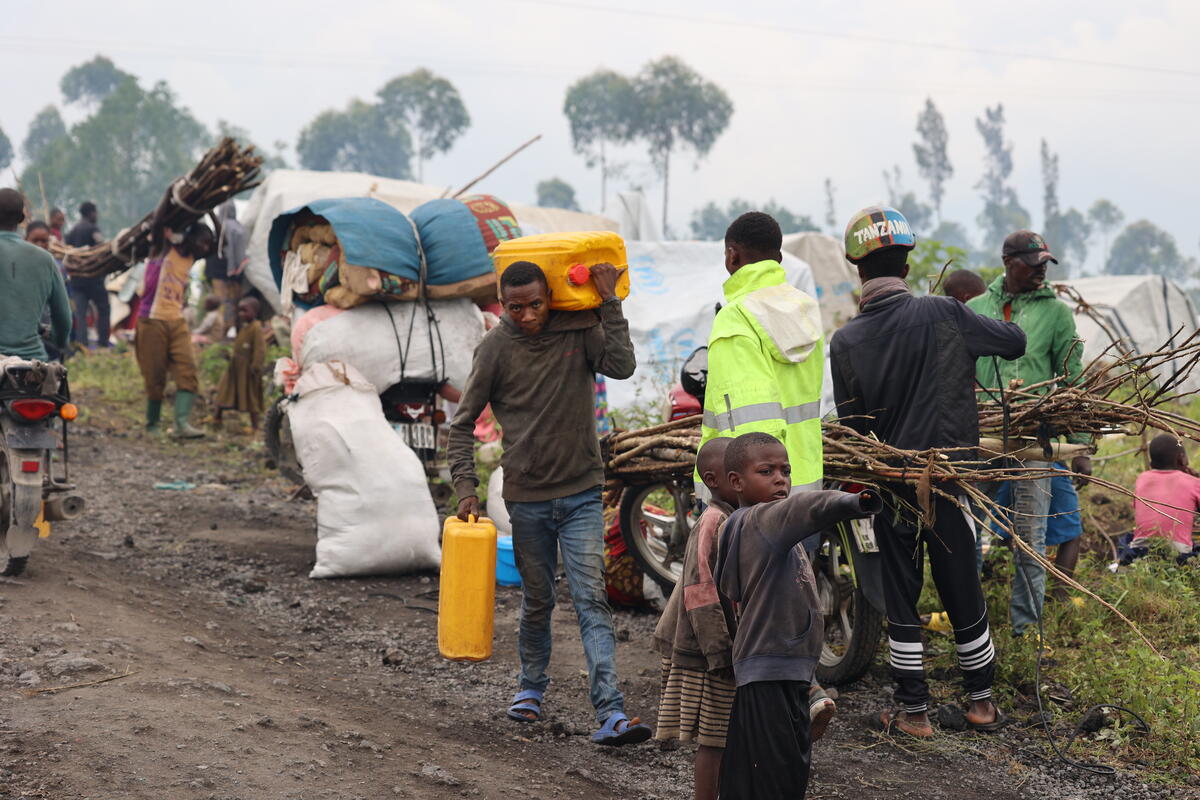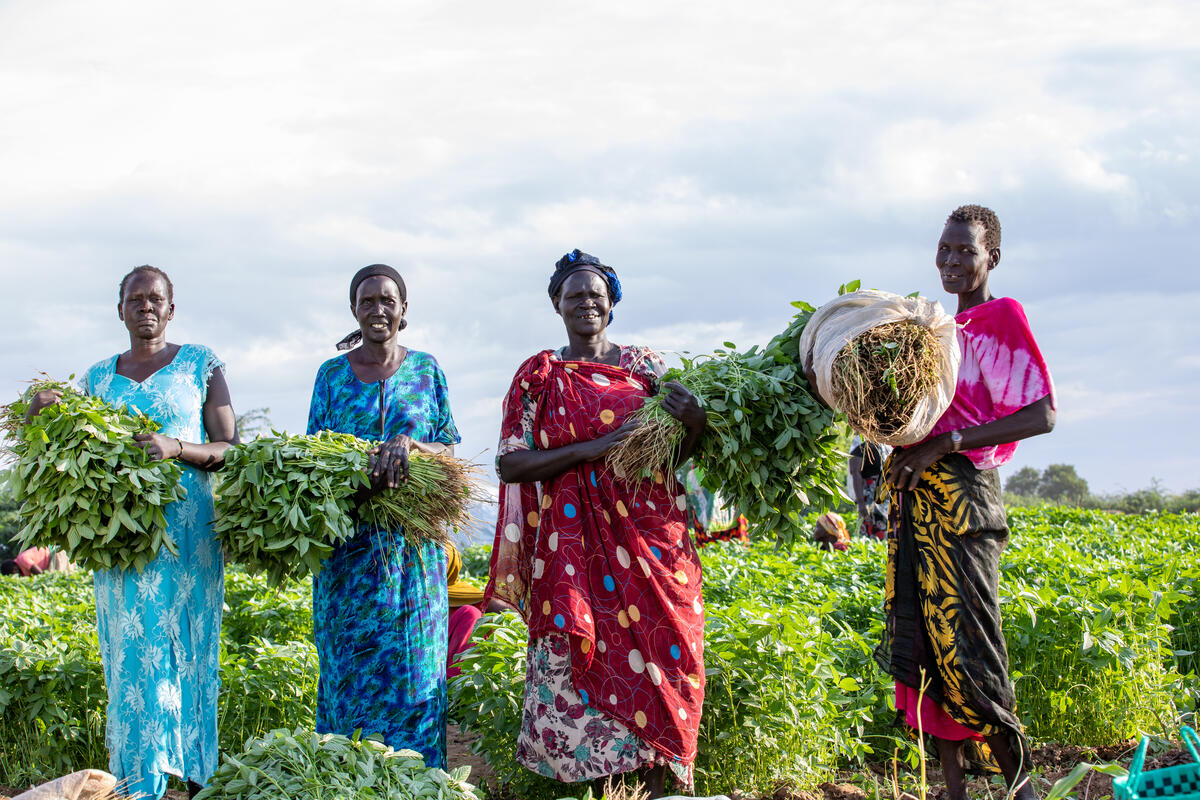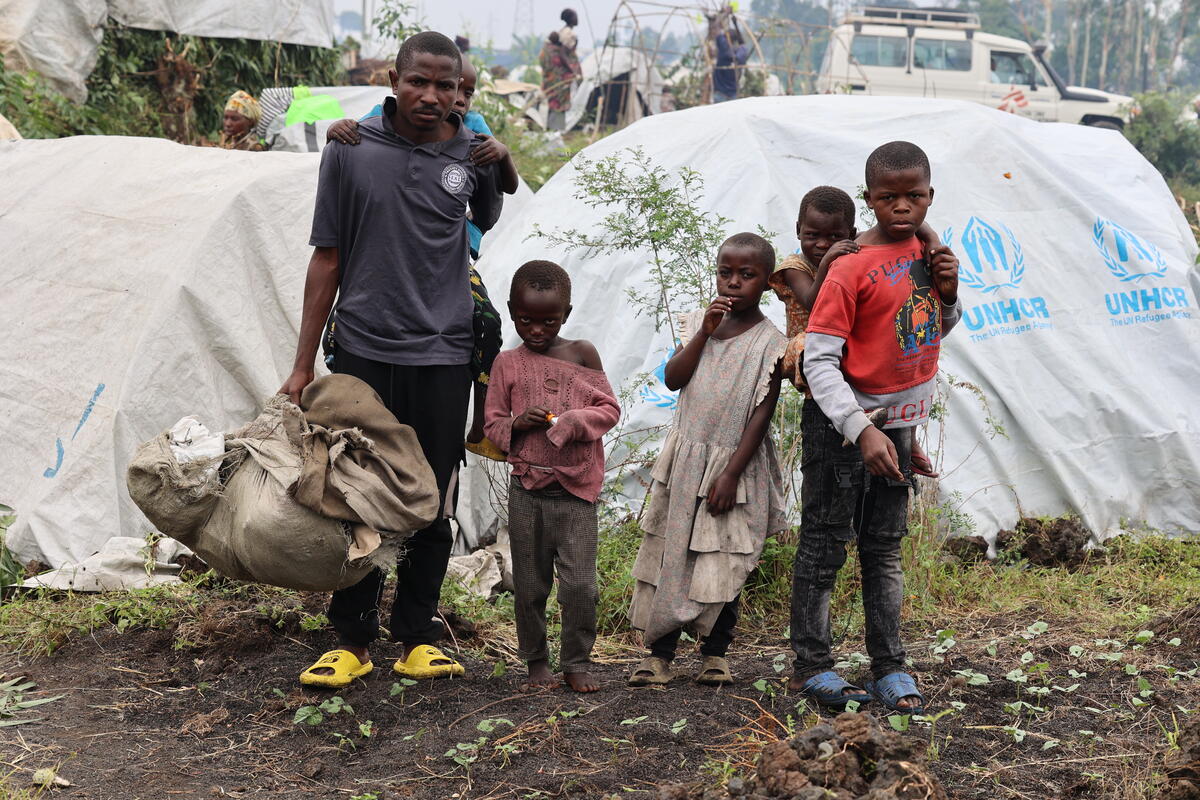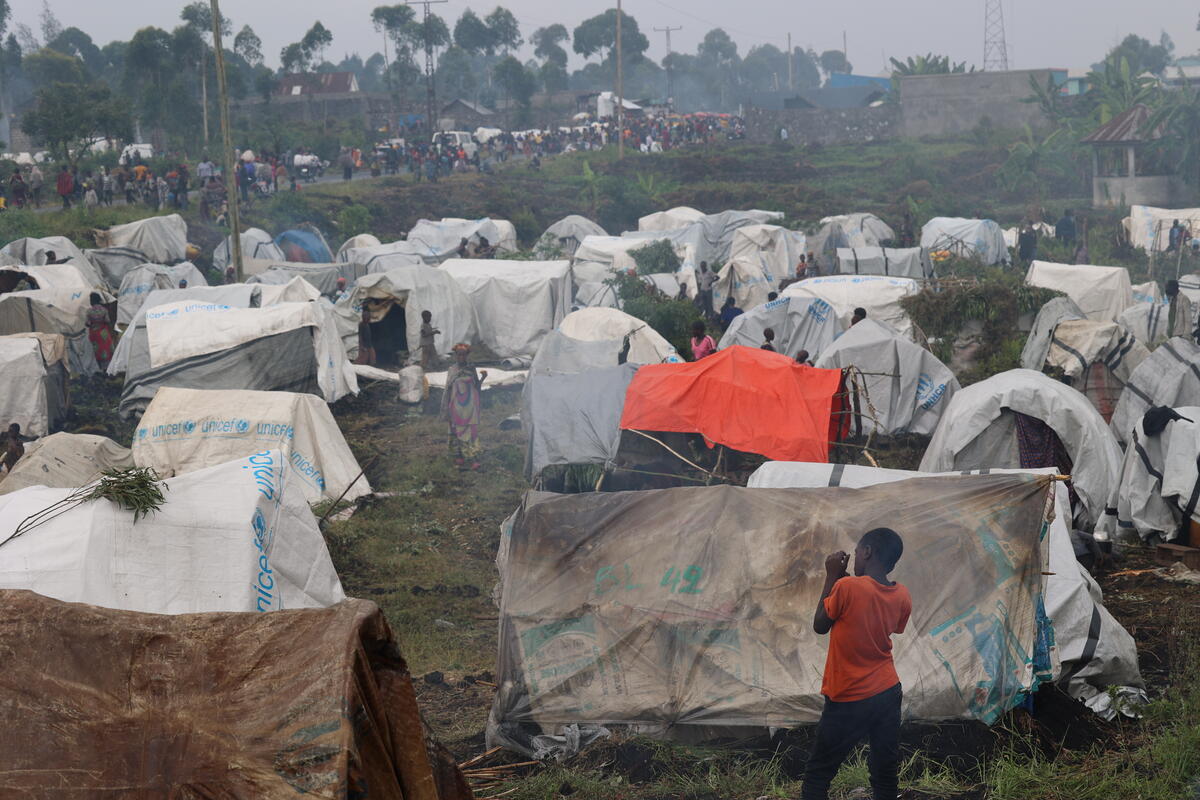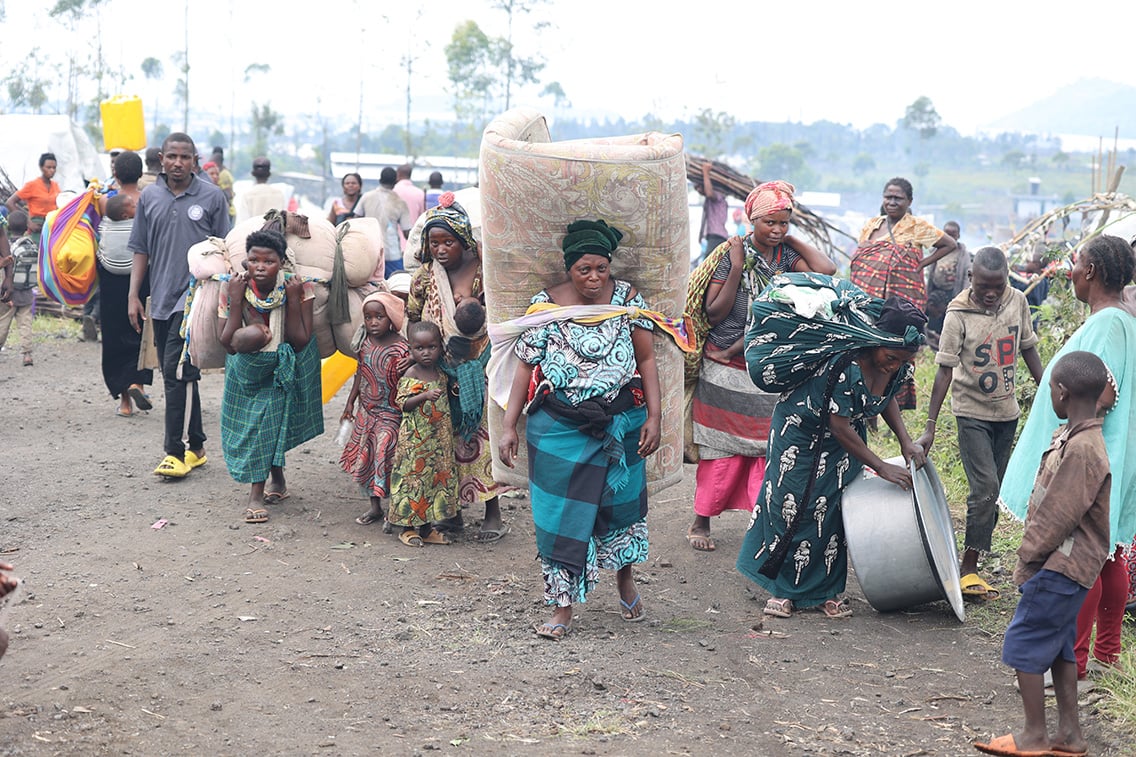Congolese refugees in Zambia await elections in their homeland before deciding to return
Congolese refugees in Zambia await elections in their homeland before deciding to return

KALA REFUGEE CAMP, Zambia, 2 June (UNHCR) - While the routines of camp life continue for the Congolese who fled across the border to the sanctuary of Zambia's Kala camp, the refugees are keenly awaiting the result of next month's general elections in the Democratic Republic of the Congo (DRC) before deciding if it is safe to go home.
In the camp's bustling market, traders continue their normal business. Farmers are busy harvesting various crops, from maize to sweet potatoes and cassava tubers. Clinics attend to the sick. Students in the primary and secondary schools attend classes delivered in the French they will speak when they return to DRC.
However, the promised elections in the DRC - slated for July - are constantly on the minds of the 19,000 people housed at Kala. Congolese refugees, hoping for stability and peace in DRC, are following developments in their homeland closely.
"I always think of home since I came here in 2000 from Kalemie. I hope for good elections in our country," said Majivuno Urban, the refugee community spokesman in this government camp run with UNHCR help. Seeing both the recent positive political developments and what has happened in the past in war-ravaged DRC, the refugees are neither optimistic nor pessimistic.
"I am ready to return, but from the reports we are getting, things regarding elections seem to be moving slowly, with a number of postponements. That makes us think the elections may not go very well," Urban said. "It is very difficult for me and others to go immediately. I have to study the situation just after elections."
Urban's views were echoed by other refugees in the camp, which was opened in 2000 to house Congolese fleeing a flare-up of fighting between rebel forces and the DRC government of the late Laurent Kabila. It was one of a succession of refugee crises in their homeland.
"Who wins the presidential elections - and what happens immediately after - will, to a great extent, determine the mood and our willingness to go back home," said Bernard Kapya, 42, an agriculturist and veterinary assistant who arrived at Kala in 2002.
"We are aware of the peace so far, and the power-sharing agreement that has been sustained for some time," he said. "I fled Congo because of war. I have seven children and would like to go back only when the situation is really calm."
Zambia currently hosts about 154,000 refugees. The majority are from Angola - some 26,000 in camps and a further 50,000 settled among the Zambian population. The 60,000 Congolese are the next largest group in the country. Most are in the north-eastern Zambia camps of Kala and Mwange, which are located close to the DRC border to facilitate eventual repatriation.
A year ago, when food rations to refugees were disrupted by funding shortages, some Congolese refugees went home on their own despite the uncertainties in DRC. But the Zambian official in charge of Kala camp, Joseph Musonda, said the refugees now were awaiting the elections.
"To me, it seems the refugees are interested in the outcome of the elections and not necessarily the elections. It's a wait-and-see game," said Musonda. "Last year, owing to food pipeline disruptions, some refugees from Kala went back to Congo spontaneously. However, following a stable situation with food this is no longer the case."
As well as the information about changes in the DRC and election developments that refugees hear from visitors and the media, UNHCR and Zambian Government officials keep the refugees up to date with systematic news about the situation in DRC.
"As we receive information from UNHCR staff in DRC, we convey it to the refugees so that they are informed," said Napaporn Bunkalya, UNHCR field officer for Kala. While UNHCR is now providing care and maintenance for the refugees in the camp, contingency plans are in place to begin assisting a Congolese repatriation once a sustainable return is possible. That prospect should soon be clearer.
By Kelvin Shimo in Kala Camp, Zambia

